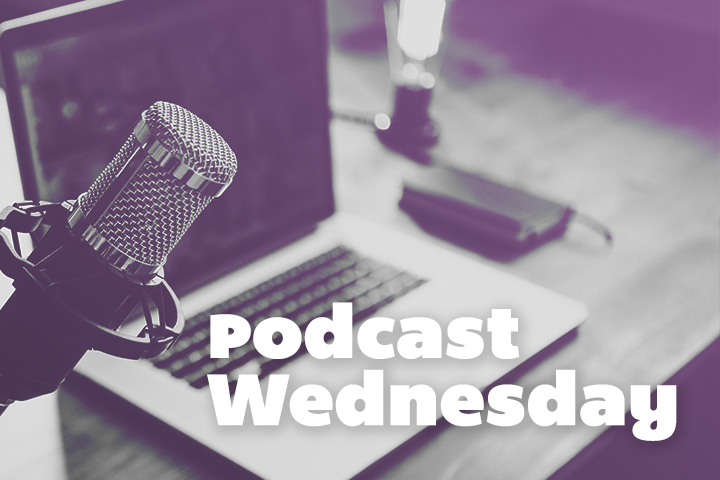I’m thinking a lot about loneliness. And solitude. And connection. You too? We’re not alone. Dr. Vivek Murthy, former Surgeon General of the United States just wrote a book, Together: the Healing Power of Social Connection in a Sometimes Lonely World. He spoke recently on Brené Brown’s new podcast, Unlocking Us, and also with Shankar Vedantam on Hidden Brain, the NPR social science podcast, — different, both excellent interviews.
This week’s Hidden Brain episode, A Social Prescription: Why Human Connection Is Crucial To Our Health.
About Hidden Brain: Vedantam is NPR’s social science correspondent and he uses storytelling to break down the latest social science research for listeners. (I loved the September 24, 2018 episode entitled The Psychological Forces Behind a Cultural Reckoning: Understanding #MeToo (which answers why #metoo caught fire now — when sexual assault had been raised time and time again with little traction in the past?) and — a nice companion to this week’s Vivek Murthy podcast — The Lonely American Male, from March 19, 2018.)
Dr. Murthy talks about how during his time as Surgeon General he came to realize the deep connection between the serious health issues we face, and loneliness. Loneliness a bigger measured problem than diabetes and heart disease (yet we don’t talk about it). Suicide rates have gone down in many areas of the world; why have they worsened in the US? What’s the connection between deep, disconnected loneliness, depression, anxiety, health outcomes and mortality rates?
Relationships, Murthy says, are a powerful source of healing, yet we’re just starting to talk about this and understand how connections with others deeply affects all our health outcomes.
We have to “rethink and harness the power of relationship and recognize that they’re not just nice to have, they are necessary to have–they’re an essential part of the foundation that makes us healthy well and strong,” Murthy says.
Vedantam asks if the current COVID-19 crisis, and “social distancing” is increasing our loneliness. Will it make us more disconnected, make us more unhealthy? Drive up bad health outcomes and mortality rates?
This crisis, Murthy answers, is an opportunity to re-think and re-center our lives around relationships — to more deeply appreciate the power they have in our lives, to re-focus our attention on them. And not just our close ties, but also our loose ties. The neighbors we wave at but don’t know their names. People we pass on our commutes. Strangers we smile at or share a word with. Co-workers. Near and far, appreciating all our human connections and the role they play in the fabric of our well-being. Murthy says:
If we approach this with intentionality, if we approach this time with the mindset that we are going to double down and focus on both the quality and quantity of the time we dedicate to the people we love, then I think we may be able to come out of this much stronger than when we began. We may be able to use COVID-19 as a way to reset how we approach relationships and to revisit the place that relationships have in our lived priority list.
Using this time with intentionality — I love that idea.
Murthy reminds us loneliness doesn’t always present straightforward; it can manifest as anger, irritability, depressed mood, and worry/anxiety. Loneliness feeds into and is a companion to addiction.We also attach shame to loneliness. In all these ways, loneliness begets loneliness.
Our brains that associate chronic loneliness with stress and danger, which has the effect of focusing ourselves on ourselves, — logical from an evolutionary perspective (promoting our safety). But sadly this creates a vicious cycle of being unaware that others want to connect and are ready to help, if we could just take the risk, be vulnerable, trust and ask for help. It’s a downward spiral that is challenging to break.
Interestingly, in the midst of the solitude this spiral lands us in, we can find the seed of real connection.
Connection to self, Murthy says, is the foundation we need to connect to other people. In solitude we can go inward and develop our own self-perspective — instead of just absorbing the cultural messages we’re not good enough.
Solitude allows us focus again on just being. We can take a break from noise and doing and action. It can be simple, such as taking a moment to really listen to the ambient noise around you. Naming three things you’re grateful for right now. Following your breath for a minute.
In this time of great upheaval, it’s more important than ever that we find time for that solitude. And the key here is that a little bit of time can go a long way. This is about spending a few quality minutes allowing ourselves to just be.
Building our relationship with ourself, in other words, gets us ready to connect with others. And it’s through that connection that we build real wellness, real health.
What a great mindset for using this time. As we physically distance, let’s focus on relationships, including the one we have with ourselves.
There’s so much more in this episode — such as the “moai” Murthy and a small group of his friends use to stay intentionally and deeply connected. And I loved his interview with Brené as well; check these episodes out!
Be well, wash your hands, and stay connected —
Lisa


